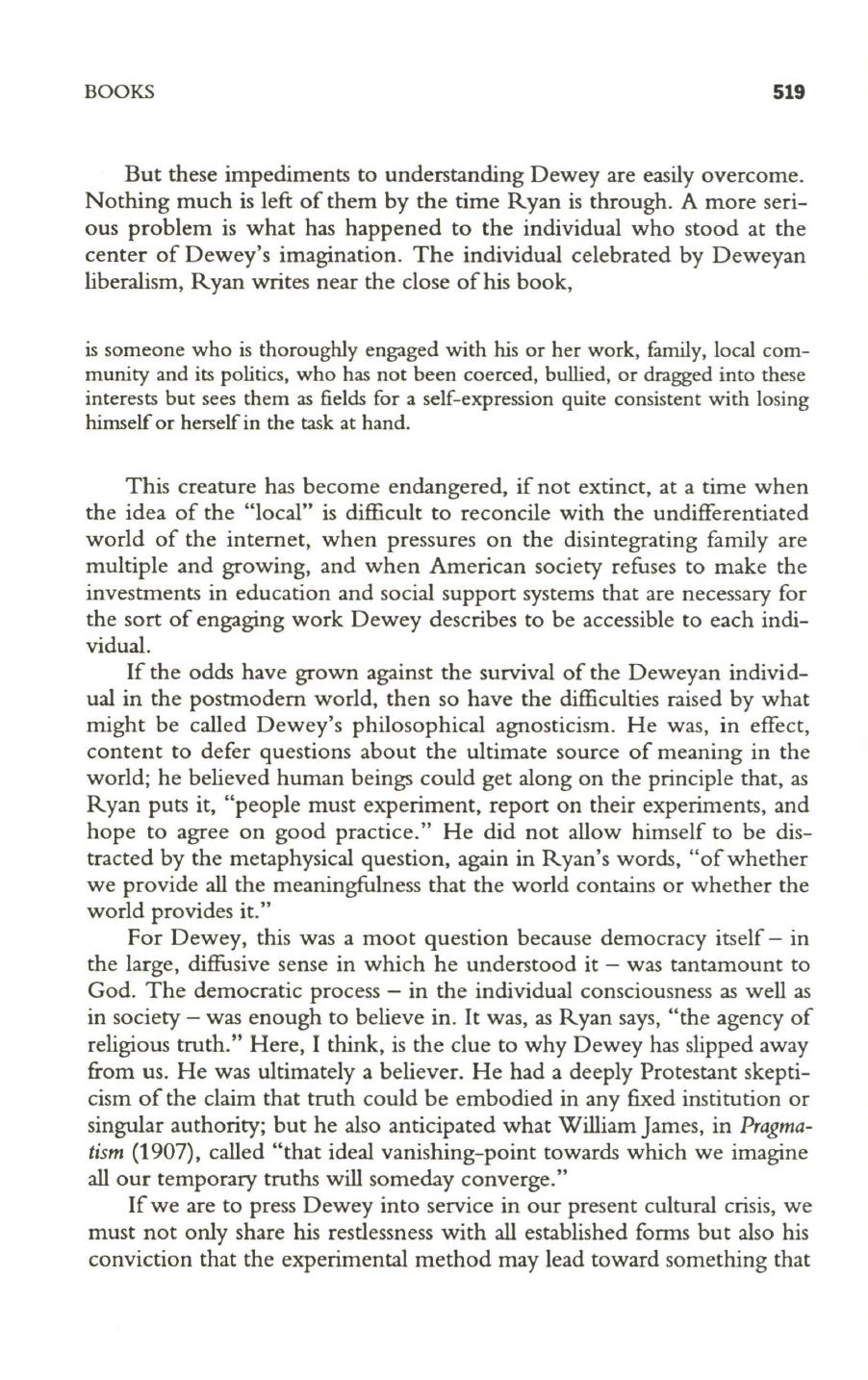
BOOKS
519
But these impediments to understanding Dewey are easily overcome.
Nothing much is left of them by the time Ryan is through. A more seri–
ous problem is what has happened to the individual who stood at the
center of Dewey's imagination. The individual celebrated by Deweyan
liberalism, Ryan writes near the close of his book,
is someone who is thoroughly engaged with his or her work, family, local com–
munity and its politics, who has not been coerced, bullied, or dragged into these
interests but sees them as
fields
for a self-expression quite consistent with losing
himself or herself in the task at hand.
This creature has become endangered, if not extinct, at a time when
the idea of the "local" is difficult to reconcile with the undifferentiated
world of the internet, when pressures on the disintegrating family are
multiple and growing, and when American society refuses to make the
investments in education and social support systems that are necessary for
the sort of engaging work Dewey describes to be accessible to each indi–
vidual.
If the odds have grown against the survival of the Deweyan individ–
ual in the postmodern world, then so have the difficulties raised by what
might be called Dewey's philosophical agnosticism. He was, in effect,
content to defer questions about the ultimate source of meaning in the
world; he believed human beings could get along on the principle that, as
Ryan puts it, "people must experiment, report on their experiments, and
hope to agree on good practice." He did not allow himself to be dis–
tracted by the metaphysical question, again in Ryan's words, "of whether
we provide all the meaningfulness that the world contains or whether the
world provides it."
For Dewey, this was a moot question because democracy itself - in
the large, diffusive sense in which he understood it - was tantamount to
God. The democratic process - in the individual consciousness as well as
in society - was enough to believe in. It was, as Ryan says, "the agency of
religious truth." Here, I think, is the clue to why Dewey has slipped away
from us. He was ultimately a believer. He had a deeply Protestant skepti–
cism of the claim that truth could be embodied in any fixed institution or
singular authority; but he also anticipated what William James, in
Pragma–
tism
(1907), called "that ideal vanishing-point towards which we imagine
all our temporary truths will someday converge."
If we are to press Dewey into service in our present cultural crisis, we
must not only share his restlessness with all established forms but also his
conviction that the experimental method may lead toward something that


